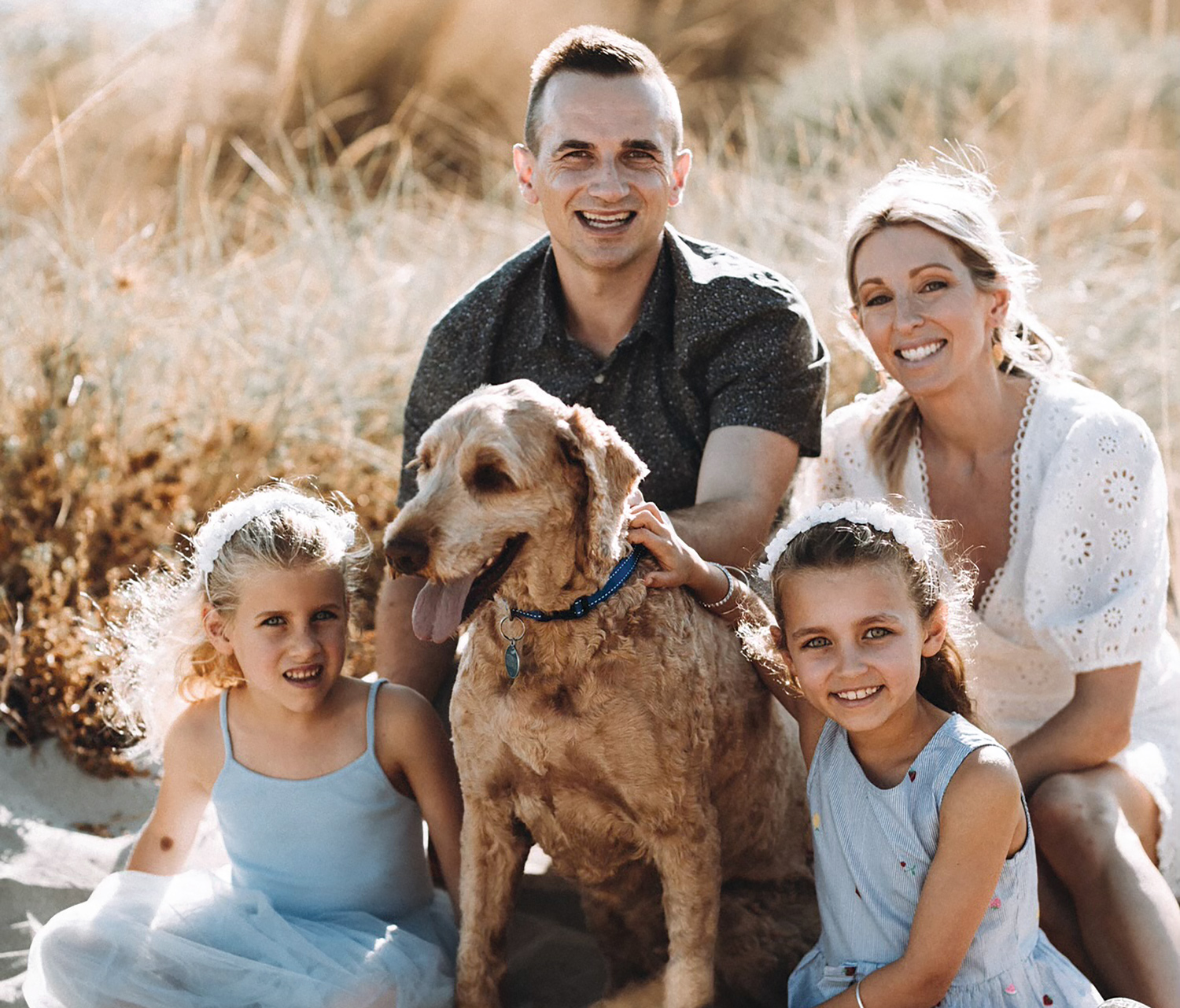 GP Dr Andrew Leech is doing medicine differently. At his Murdoch clinic, listening and a dose of fun are powerful tools to help patients.
GP Dr Andrew Leech is doing medicine differently. At his Murdoch clinic, listening and a dose of fun are powerful tools to help patients.
By Ara Jansen
Recently Dr Andrew Leech lost a patient. He posted how he felt about it on a popular business networking platform. While that might seem a little odd, Andrew wanted to remind people and other doctors that it was OK to grieve and feel sad for the loss of a patient, especially one with whom you have worked closely.
“I don’t mind being vulnerable,” says Andrew, who was recently named RACGP WA GP of the Year. “I want to be open and transparent and describe the challenges that doctors have, as much as we can, in a public space. Sharing the story wasn’t about courting controversy but to bring to light issues of being human.
“Some of our patients die and you are at the forefront of their lives. It’s OK to feel grief. We have emotions too and it’s important to talk about them and get support.
“We are in such a privileged position where we are part of the journey and death is challenging. I felt really moved in that situation and I felt quite emotional about this patient. In so many cases we are at the other end of that – we are doctors and should keep ourselves apart from that. It was a reminder that we are all human. That person was special to me and that’s a very special part of the job. I’m grateful to be able to work with patients that way.”
Born and raised in Melbourne, Andrew is an only child. As the only kid in the house, he learnt to keep himself entertained and regularly reminds his daughters, Charlotte and Isabelle, if they ever cry boredom.
His first step into university was for a Bachelor of Science at the University of Melbourne. Then Andrew decided he wanted to do medicine and flew across the country to Notre Dame Fremantle. He later received a Diploma in Child Health from the University of Sydney.
“It was challenging,” Andrew recalls. “Notre Dame was just starting and part of their process was doing an interview. My grades were fine and I convinced them I would make a great doctor. I got a place and moved across the country.
Bold move
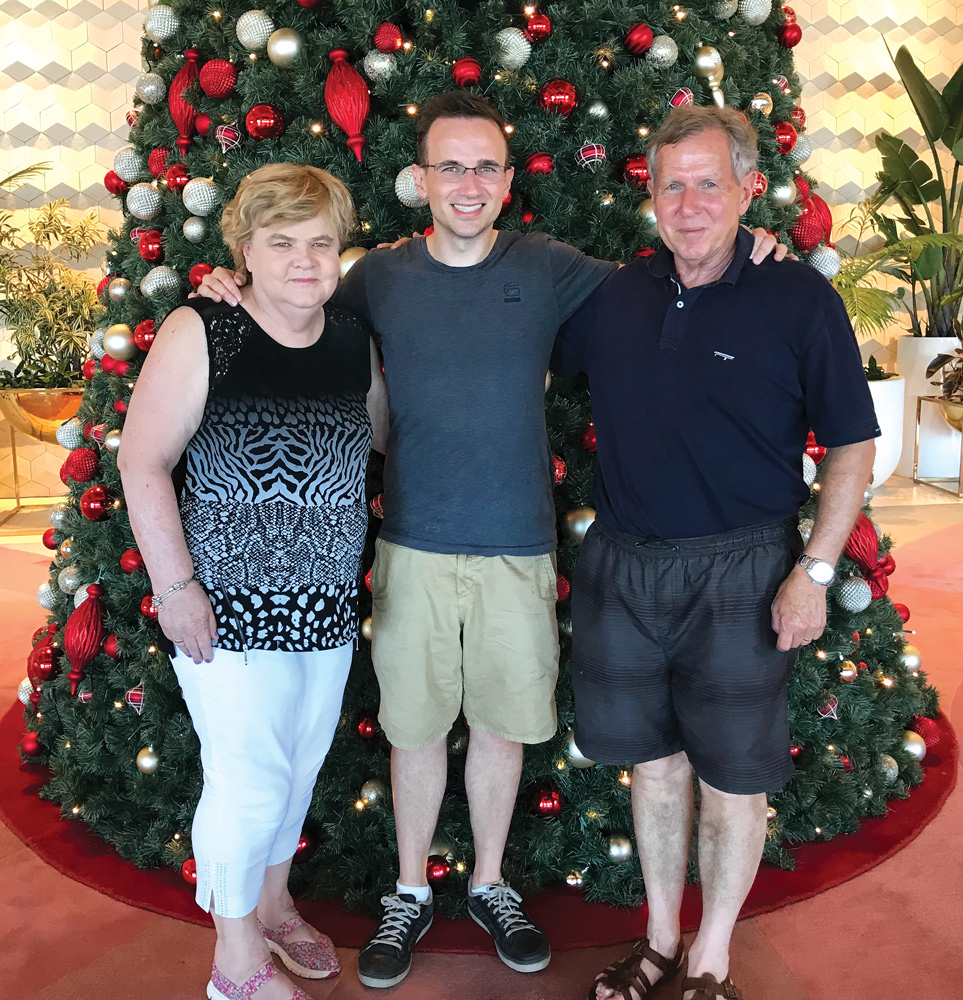 “To be honest, I’d never really even heard of Perth, and I’d never been here or had friends here. It was one of the hardest things I have ever done. I lived at UWA and eventually found my feet and made friends.
“To be honest, I’d never really even heard of Perth, and I’d never been here or had friends here. It was one of the hardest things I have ever done. I lived at UWA and eventually found my feet and made friends.
“My parents always told me to take every opportunity and I have lived by that throughout my career so far. It has opened up so many things for me.”
His mother and father remain a strong influence in his life. “I’m very connected to them and they have given me a lot of great advice and values around life and spirituality.”
Andrew has lived in Perth for almost 10 years and considers it home, though he will probably always have a piece of his heart in Melbourne. He met his wife Tanya here. His daughters were born in Perth.
Almost until the last minute, Andrew was undecided about becoming a GP as he enjoyed all his rotations and found each of them interesting. He had a feeling paediatrics might be his specialty and moved back to Melbourne for a while to pursue it.
While he started working as a GP in Melbourne, he’s been back in Perth since 2015. What eventually moved him to become a GP was continuity of care. It’s also one of thing he prides his clinic for working hard at. He loves that he can treat whole families or generations from the same family.
“When I was doing paediatrics, you’d be getting to know someone, successfully working with them and then you would never see them again. I think it’s really important to cultivate a connection with a patient over time. I think that’s what moved me into becoming a GP with an interest in paediatrics – 60-70% of my patients are children and young people now.”
Andrew’s initial idea for The Garden Family Medical Clinic in Murdoch was a one-stop-shop for child and paediatric health, but he realised that excluded the rest of the family and he didn’t want to lose them from the circle of care.
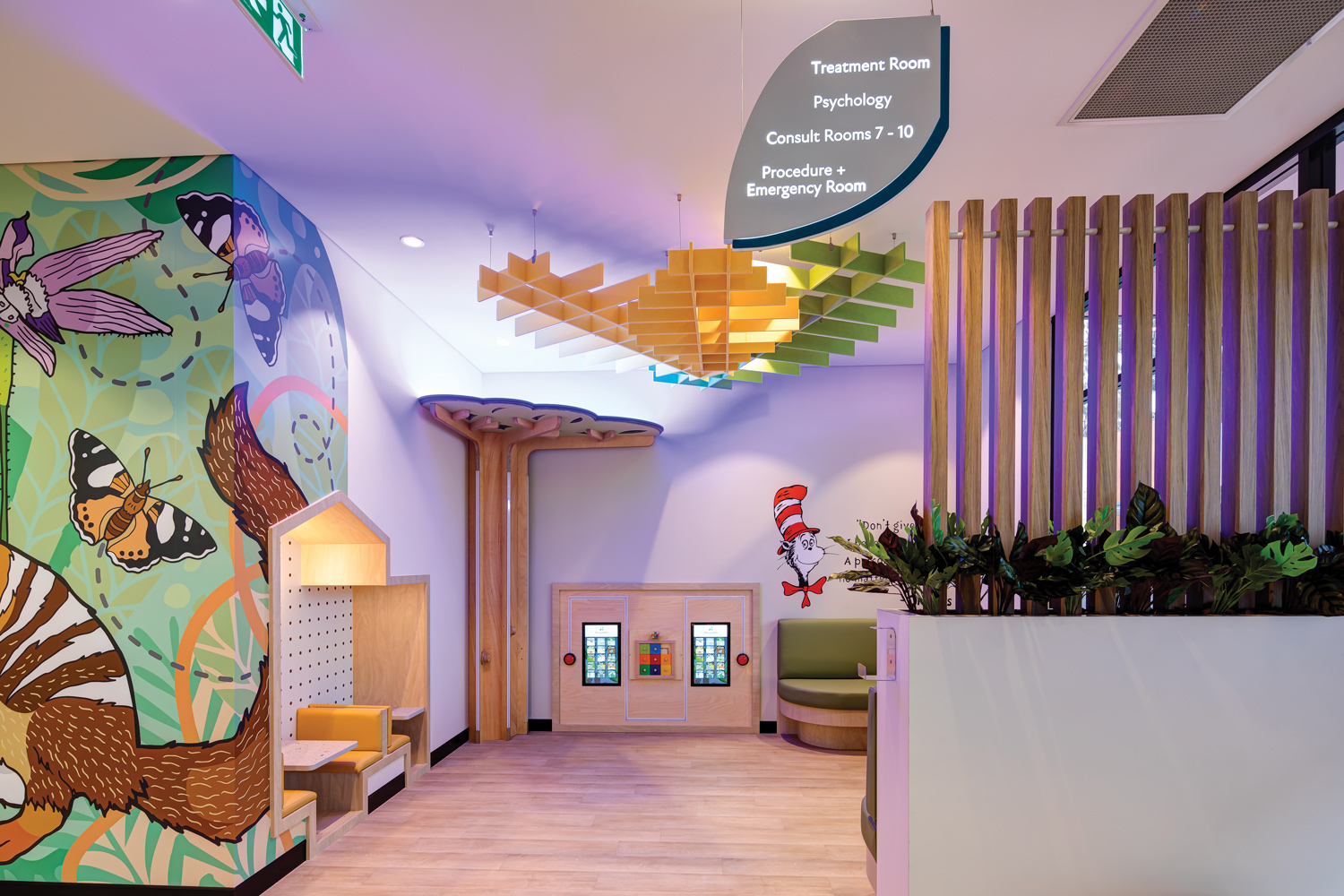 Positive vibe
Positive vibe
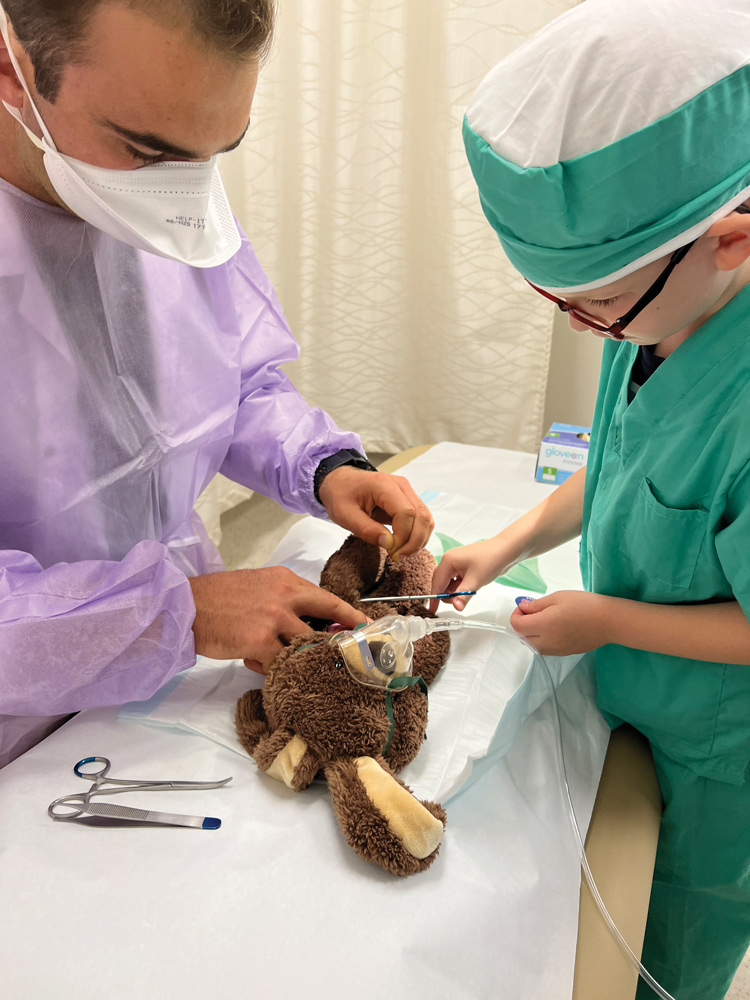 The Garden opened just over a year ago and has 16 doctors and six nurses. The space is cheerful, child-friendly and features a much-used garden courtyard and internal green walls. His one brief when fitting out the space was to not make it look like a medical clinic.
The Garden opened just over a year ago and has 16 doctors and six nurses. The space is cheerful, child-friendly and features a much-used garden courtyard and internal green walls. His one brief when fitting out the space was to not make it look like a medical clinic.
“As a bystander and an educator, I pick up so many things – primarily it’s about the emotions and feelings about how we should care for people. I think GPs need to be invited to be inspired, and together we can do so many things better and help how we work to evolve.
“It doesn’t come cheap but part of that is to create a climate of vibrant and compassionate care no matter where the patient comes from and that they feel welcomed with quality of care.”
Andrew’s wife Tanya is a nurse who also works at The Garden. Her influence – and working closely with the other staff – has improved the clinic and reminds Andrew to always be collaborative.
“We want people who work here to feel valued and respected and to use their own experience to help us all learn.”
He maintains one of the most powerful things a doctor can do is listen. In more vulnerable patients, they often need someone to just hear them. In younger patients, looking out for their mental health
is vital.
“The connection you create with young people is one of the most important things to set up early. It’s a wise investment, because the more they can talk to you, the more they will trust you. Sometimes that may save their life; it’s happened over and over again,” he says.
“The world is tough for teens, and I want to be here to help them. Being able to talk to them in their own language – I’ve definitely learnt some new lingo – is also hugely valuable in order to connect.”
He’s currently writing a book on child mental health.
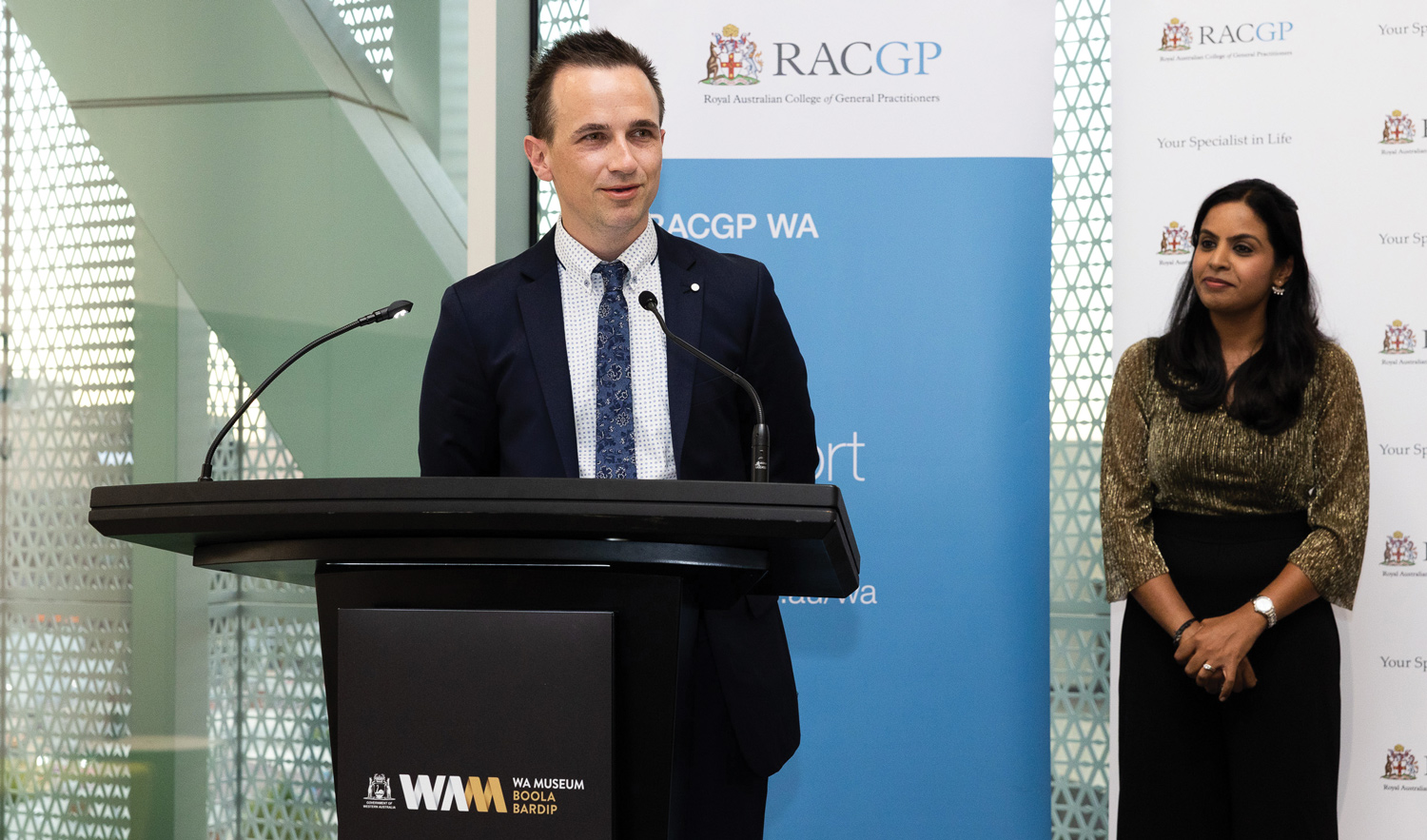 Motivators
Motivators
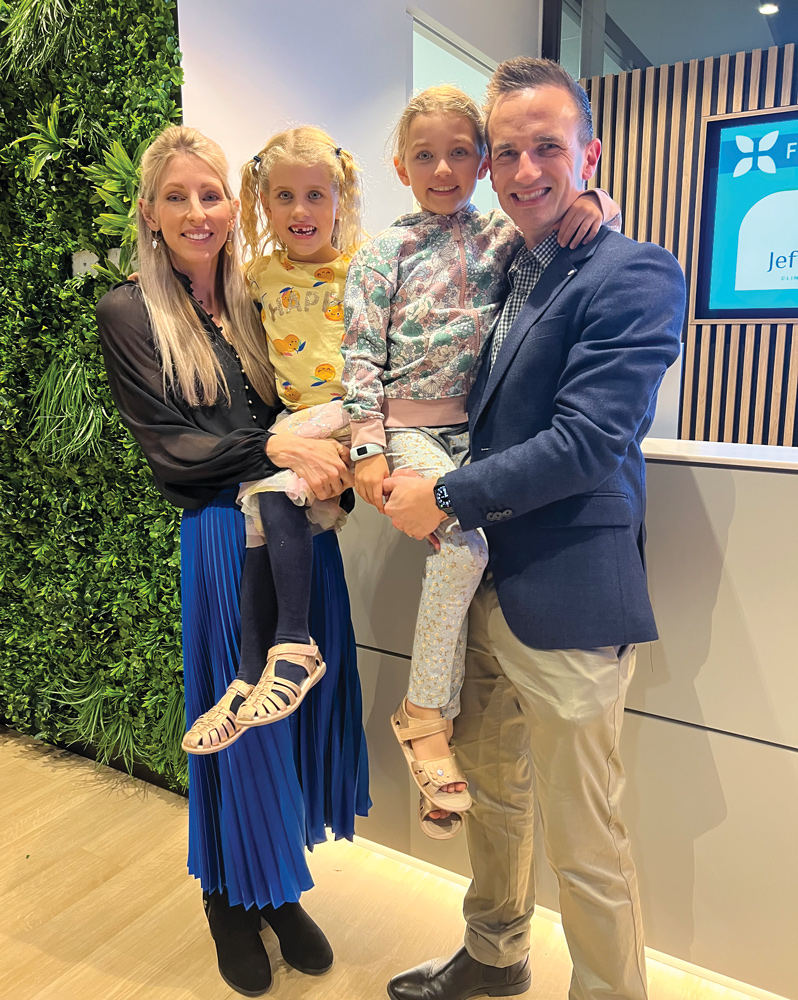 With his own daughters in upper primary school, he’s also putting those skills to work at home. “They are the core of my universe. In everything I do, I have them in my heart. I can’t emphasise that enough. Coming home to family is the most important part of my life.” Andrew’s parents have recently moved to Perth as well.
With his own daughters in upper primary school, he’s also putting those skills to work at home. “They are the core of my universe. In everything I do, I have them in my heart. I can’t emphasise that enough. Coming home to family is the most important part of my life.” Andrew’s parents have recently moved to Perth as well.
Being the only male in a house of three females and an apparently feral collection of eight Barbies, Andrew recently felt it was time to get reinforcements. He braved a toy store and bought the last Ken on the shelf.
“I didn’t know how embarrassing that would be!” He’s now been pressganged into playing Barbies and sometimes is convinced to be a real live Ken to his daughters’ life-sized Barbies.
When they’re not in Barbieland, the Leeches – along with labradoodle Monty – spend a lot of time outdoors. A good dose of green is really calming for the whole family. The chance to walk in nature creates mindfulness and encourages easy conversation. Game nights and jigsaw puzzles are also big in their home – Monopoly, Scrabble, Uno and Avocado Smash are all favourites.
For fitness, Andrew enjoys cycling and going to the gym. He also teaches a regular spin class.
“It makes my patients laugh. They think it’s hilarious. It’s my escape and I feel so much better after doing it. I love the energy of it and teaching the class guarantees I’ll show up! I’ve made the commitment, so I’ll be there.
“We have a bit of a disco atmosphere, but people don’t like me singing in class. If I start singing, they all ask me to stop. Clearly, I can’t sing.” Apparently, he’s also a terrible cook and can’t follow a recipe.
While Andrew takes the practice of medicine seriously, he believes there’s always room for laughter, honest connection and a bit of fun. It’s part of why he started a Teddy Bear Hospital.
Once a year, teddies, bunnies, the odd dinosaur and all precious stuffed friends are welcomed at the clinic where staff and Notre Dame medical student volunteers do everything from stitches to injections or use the MRI machine, delightfully made from a large cardboard box with a skateboard rolling the patient inside of it.
By participating, kids can learn about the types of treatments they might encounter at the doctor’s or in hospital. They treated 120 friends at the most recent hospital and raised more than $1000 for Fair Game Australia. The money allows the WA-based not-for-profit to rehome 200 pieces of pre-loved sports equipment which improves access to sport and fitness activities in WA’s remote, regional and underserviced communities.

